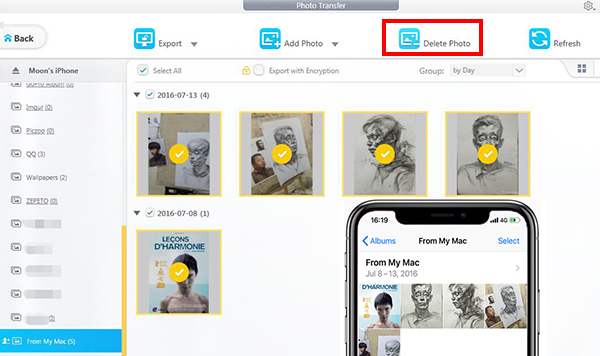Can I Delete Javaforosx.dmg On My Mac
- Can I Delete Dmg Files From My Mac
- Can I Delete Java For Os X.dmg On My Macbook Pro
- Can I Delete Java For Os X.dmg On My Macbook Air
- Can I Delete Java For Os X.dmg On My Macbook
- Can I Delete Java For Os X.dmg On My Mac Os
This topic includes the following sections: Tgt three kings deluxe download.
System Requirements for Installing the JDK on macOS
The following are the system requirements for installing the JDK on macOS:
The answer is yes. You can delete the.pkg/.dmg/.zip file after installing the app. It will not affect the app as both files are different. These packages are just containers. Well, the short version of the question is in the title, but I'll explain further. My iMac, my families main computer, is running out of disc space, and after googling/looking for topics on the issue, I still can't find a clean cut answer to the question 'If I delete.dmg files for programs I have already install/use, will the programs become unusable/broken and will my iMac still function. If I'm not mistaken they're backups of the users you previously deleted. You're good to go to delete them. If you want a tip, mount the dmg file of your choice (I'd take the smallest one) and see if I'm right. If so, delete away my friend. You will not be able to recover any data from those deleted users in a future time tho.
Any Intel-based computer running macOS.
Administrator privileges.
You cannot install Java for a single user. Installing the JDK on macOS is performed on a systemwide basis for all users. Administrator privileges are required to install the JDK on macOS.
Determining the Default JDK Version on macOS
When starting a Java application through the command line, the system uses the default JDK.
You can determine which version of the JDK is the default by entering java -version in a Terminal window. If the installed version is 13 Interim 0, Update 0, and Patch 0, then you see a string that includes the text 13. For example:
To run a different version of Java, either specify the full path, or use the java_home tool. For example:
$ /usr/libexec/java_home -v 13 --exec javac -version
Installing the JDK on macOS
- Download the JDK
.dmgfile,jdk-13.interim.update.patch_osx-x64_bin.dmg.Before the file can be downloaded, you must accept the license agreement.
- From either the browser Downloads window or from the file browser, double-click the
.dmgfile to start it.A Finder window appears that contains an icon of an open box and the name of the.pkgfile. - Double-click the
JDK 13.pkgicon to start the installation application.The installation application displays the Introduction window. - Click Continue.
- Click Install. A window appears that displays the message: Installer is trying to install new software. Enter your password to allow this.
- Enter the Administrator user name and password and click Install Software.The software is installed and a confirmation window is displayed.
.dmg file if you want to save disk space. Uninstalling the JDK on macOS
You must have Administrator privileges.Note:
Do not attempt to uninstall Java by removing the Java tools from /usr/bin. This directory is part of the system software and any changes will be reset by Apple the next time that you perform an update of the OS.
- Go to
/Library/Java/JavaVirtualMachines. - Remove the directory whose name matches the following format by executing the
rmcommand as a root user or by using thesudotool:/Library/Java/JavaVirtualMachines/jdk-13.interim.update.patch.jdkFor example, to uninstall 13 Interim 0 Update 0 Patch 0:
$ rm -rf jdk-13.jdk
Installation FAQ on macOS Platform
This topic provides answers for the following frequently asked questions about installing JDK on macOS computers.
Can I Delete Dmg Files From My Mac
1. How do I find out which version of Java is the system default?
When you run a Java application from the command line, it uses the default JDK. If you do not develop Java applications, then you do not need to worry about this. See Determining the Default JDK Version on macOS.
2. How do I uninstall Java?
Can I Delete Java For Os X.dmg On My Macbook Pro
See Uninstalling the JDK on macOS.
3. After installing Java for macOS 2012-006, can I continue to use Apple's Java 6 alongside the macOS JDK for Java 13?
If you want to continue to develop with Java 6 using command-line, then you can modify the startup script for your favorite command environment. For bash, use this:
$ export JAVA_HOME=`/usr/libexec/java_home -v 13`
Can I Delete Java For Os X.dmg On My Macbook Air
Some applications use /usr/bin/java to call Java. After installing Java for macOS 2012-006, /usr/bin/java will find the newest JDK installed, and will use that for all of the Java-related command-line tools in /usr/bin. You may need to modify those applications to find Java 6, or contact the developer for a newer version of the application.
Can I Delete Java For Os X.dmg On My Macbook
4. What happened to the Java Preferences app in Application Utilities?
Can I Delete Java For Os X.dmg On My Mac Os

The Java Preferences app was part of the Apple Java installation and is not used by Oracle Java. Therefore, macOS releases from Apple that do not include Apple Java will not include Java Preferences.